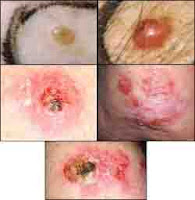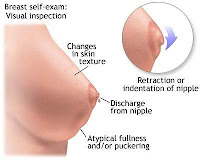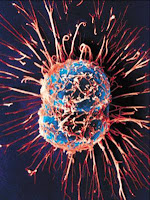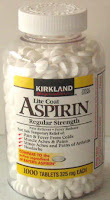
Plastic surgery is divided into two types, namely reconstruction and plastic surgery aesthetic plastic surgery.,
Reconstructive plastic surgery for breast cancer do to change the skin, breast and nipple tissue removed during mastectomy. The number of missing tissue varies with mastectomy respectively. The factors that contribute to the amount of tissue removed includes wide, size, and location of the original tumor and its proximity to the axilla, where the lymph nodes removed.
This is an option for women facing a mastectomy with reconstruction is to restore the symmetry between both breasts.
Breast Reconstruction chose to restore its original form through the breast reconstruction plastic surgery. ".
After a mastectomy, you may choose to wear external breast forms or pads or no attempt to change your appearance. Or you can choose breast reconstruction, using either breast implants or your own network.
Doing
breast reconstruction is not only change your physical appearance, but also has a psychological advantage and it can help restore your confidence and your family.
Reconstructive surgery carried out in accordance with the patient's own wishes, medical condition, and treatment of cancer. When possible, plastic Surgeons encourage women to begin breast reconstruction at the same time they have their mastectomy. For many women, immediate reconstruction reduces the trauma of having her breasts removed a very large and cost.
In accordance with the development of knowledge is a variety of breast reconstruction techniques are available that offer a cosmetically attractive result. Several factors must be considered, such as destination for patients, medical condition, and previous surgery, are considered when choosing between reconstruction using tissue flaps or breast moved from other parts of the body.
One procedure to consider breast reconstruction after nipple reconstruction. Usually, the nipple and areola (the dark area around the nipple) will be removed during the mastectomy surgery for breast tissue and the risk for cancer recurrence.
Part of the nipple or areola reconstruction is usually done at a later date after completion of breast reconstruction. This allows the new breast tissue to heal and settle in a place so small in size and position adjustments can be made when the nipple and areola reconstructed. and usually patients with Outpatient lived and performed under local anesthesia. Tissue of the nipple or areola is often taken from the newly built breast. To match the color of the other nipple and areola to create, medical tattooing can also be done for adjustment.
Or using fake nipples are other options that could be temporary or permanent. The plastic surgeon makes a copy of your natural color of the nipple and areola. This can stick to using the fake breasts and stick adhesive back every week or more.
Preparation of breast reconstruction surgery
The anesthetic and any work done to treat breast cancer may take two hours. After the plastic surgery team took over, the Reconstructive part of this procedure is completed in one additional one to six hours. After surgery, patients must stay in the recovery room about two to three hours before and then transferred to a hospital room.
The first few days after the operation, you will experience some discomfort, but you will be given pain medication as needed. During your stay in hospital, your recovery will be Monitored.
After surgery you will be trained to move my arms, but not for any heavy activities such as pulling away, get out of bed, or lifting heavy objects. The nurse will help you in and out of bed. Usually the day after surgery, you will usually be sitting in a chair beside the bed. On the second day, most patients walk without help from others.
Infusion may be continued for one or two days, but you will Gradually progress to a normal diet. You may have a urinary catheter in overnight or until you can walk to the bathroom. You will also flow in the incision site. If you come home with drains in place, you will be given instructions on how to treat them.
The length of stay in hospital depends on the type of operation and the progress of your physical recovery. If you've got the implants, the average length of Hospitalization is one or two days. If the flap procedure requires only five to six days.
When you come home from the hospital, you can deal with some pain, such as swelling, and bruising for two to three weeks. You will be asked to apply the medicine to the area to replace sutures or bandages at home. Your plastic surgeon will tell you about how to bathe your wounds and treatment.
Return to normal activities and live it would normally take about six weeks after surgery. Can also occur within a few weeks you can not do heavy work.
Mastectomy and breast reconstruction will create Numbness in parts of the operation, you too will feel the pain in the tissue was taken, the patient may feel Numbness and stiffness. In time, some feeling may return in your breast. Then the scar will disappear.
After Undergoing breast reconstruction, you have to do is check your breasts regularly every month. please be aware of breast reconstruction does not affect the recurrence of cancer or oversight and generally does not interfere with chemotherapy or radiation. You also must continue to have regular screening exams, such as an annual mammogram.
Hopefully useful.
Posted by rudi at 11:58 PM 0 comments
Labels: Breast Reconstruction After Mastectomy
Article Source:
http://breast-cancersymptoms.com/  It's like rowing two islands exceeded, so efficacy of bone tonic which was also useful to prevent breast cancer.
It's like rowing two islands exceeded, so efficacy of bone tonic which was also useful to prevent breast cancer. Sunday, March 21, 2010
Sunday, March 21, 2010
 rudi
rudi
 Posted in
Posted in











